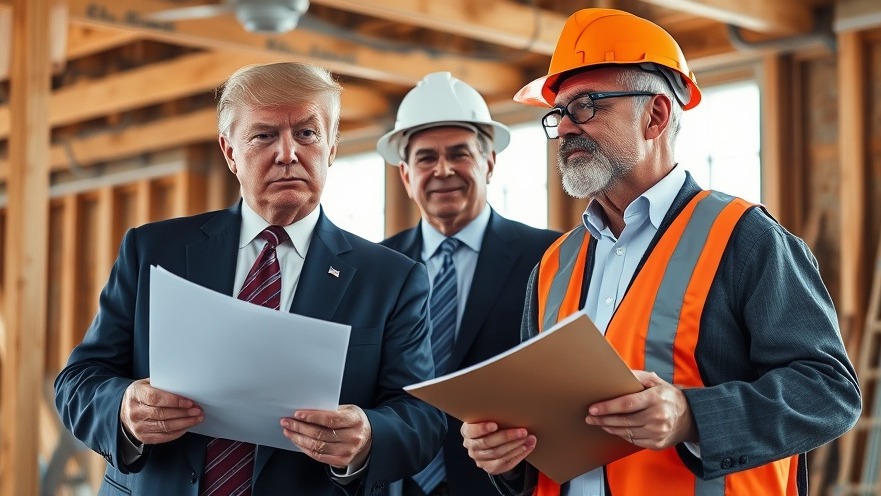
A Clash Over Pipelines: Safety vs. Ideology
In a recent discussion, Senator Ted Cruz raised concerns about what he termed "radicals" at the Pipeline and Hazardous Materials Safety Administration (PHMSA), claiming that their opposition to pipeline infrastructure is a misuse of the agency’s core mission. The dialogue, part of a larger conversation surrounding the regulation and development of energy pipelines in America, touches on the deep ideological divides in the U.S. about energy policies and environmental safety.
In 'Ted Cruz Blasts 'Radicals' At Pipeline Regulator PHMSA Who 'Oppose The Existence Of Pipelines'', the discussion dives into the ideological battles over safety regulations in the energy sector, exploring key insights that sparked deeper analysis on our end.
The Core Mission of PHMSA: Context and Controversy
Senator Cruz pointedly questioned the prevailing practices at PHMSA, suggesting that some officials use safety regulations as a means to hinder the development of pipelines. According to Cruz, the primary responsibility of PHMSA is to ensure the safety of these systems while instilling public confidence in their operations. This statement highlights a critical point: safety regulations can often become battlegrounds for larger ideological fights over energy policy.
The Ongoing Debate of Energy Infrastructure
The struggle between environmental advocates and energy developers is exacerbated by the nation’s reliance on pipeline systems for transporting oil and gas. While pipelines are trumpeted as the safest and most efficient method of transportation for fossil fuels, many environmentalists assert that their existence contributes to climate change and ecological degradation. This ongoing debate illustrates a significant tension within U.S. politics and society regarding energy development versus environmental conservation.
Future Insights: Trends in Energy Policy
Looking ahead, the discussions around PHMSA's role reflect broader trends in energy policy and environmental governance. Legislative measures and public opinion are rapidly evolving, as urgent calls for renewable energy sources shift the conversation away from traditional fossil fuels. The implications of these changes are profound—for stakeholders involved in energy, transportation, and environmental activism, adaptability will be vital as public sentiment coalesces around sustainable practices.
Radicals or Guardians? Diverse Perspectives on Pipeline Safety
While Cruz’s remarks paint a picture of obstructionism within PHMSA, it’s essential to recognize that many proponents of stricter safety regulations do not necessarily oppose pipelines in totality. They aspire to ensure that adequate measures are in place to prevent disasters that could arise from lax regulations. This nuanced view introduces a spectrum of perspectives that should be considered when discussing the future of energy policy in America.
Public Confidence and Safety Regulations
Public trust in pipeline safety is paramount for the continued operation of these energy transport systems. Instances of spills or accidents can dramatically affect this trust. Cruz emphasizes that PHMSA must work diligently to communicate and implement safety measures to foster this confidence. It is a pressing challenge for any agency tasked with managing the complexities of energy infrastructure amidst growing public scrutiny.
The Role of Government in Energy Oversight
This dialogue surrounding PHMSA showcases the critical role that government plays in shaping energy policies and ensuring they align with safety standards while responding to public concerns. As the Senate hearings identified the need for accountability and cooperation among nominated officials, it is clear that the future of pipeline regulation will require a delicate balance between development, security, and public concern.
In conclusion, we must remain vigilant as we navigate these discussions on pipeline infrastructure and energy policies. The conversation triggered by Senator Cruz in this hearing provides a foundation for ongoing dialogue about our nation’s trajectory towards energy sustainability and safety. Keeping ourselves informed and involved in these policies is essential for fostering a progressive path forward.
 Add Element
Add Element  Add Row
Add Row 



Write A Comment